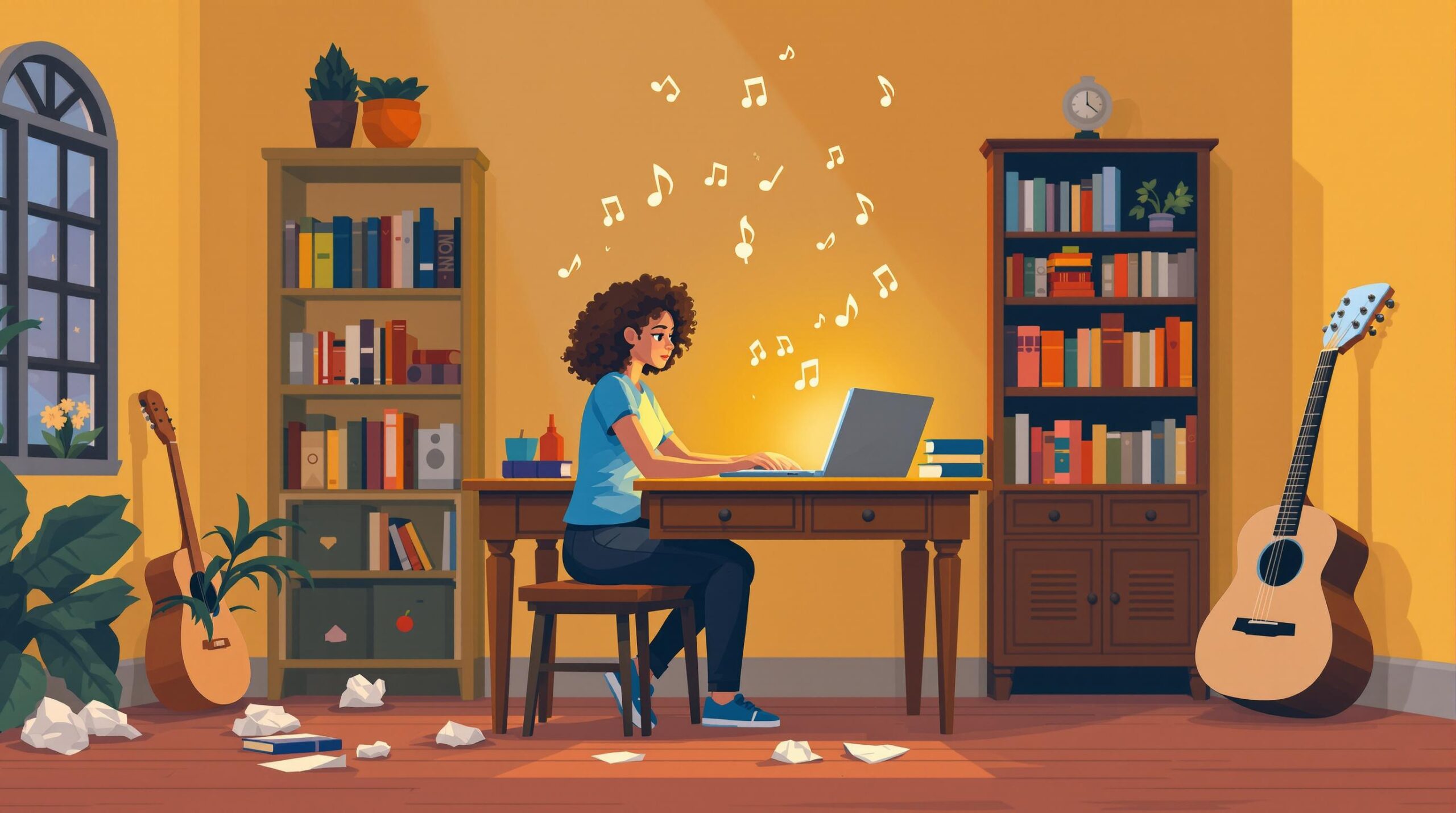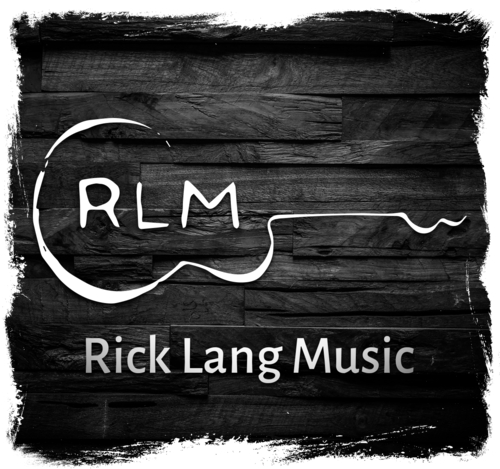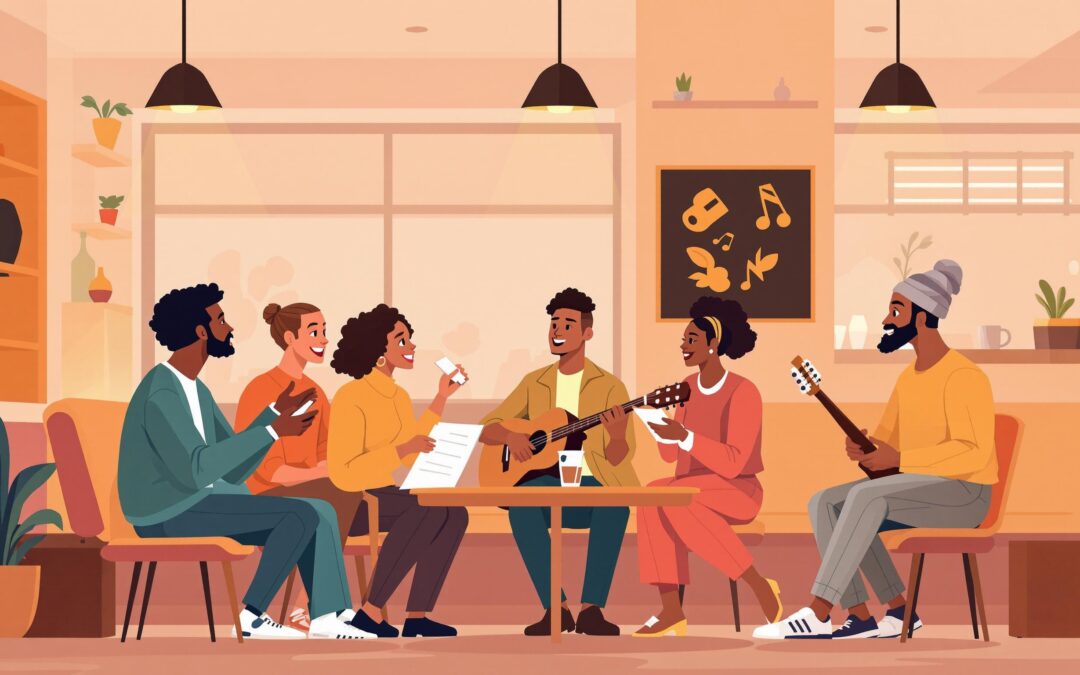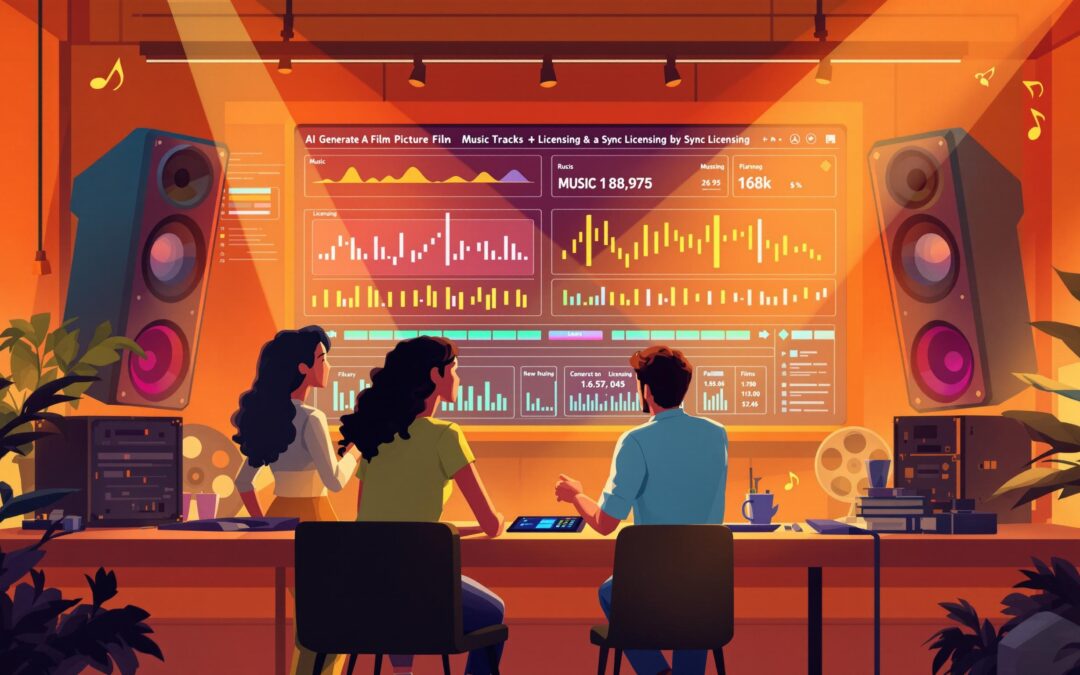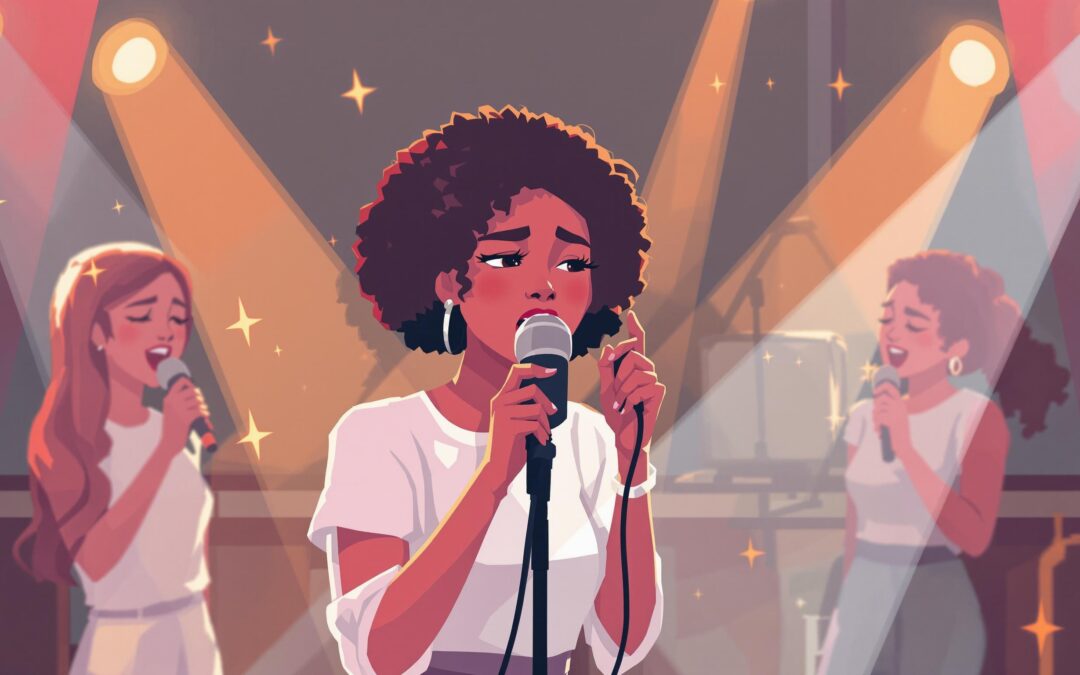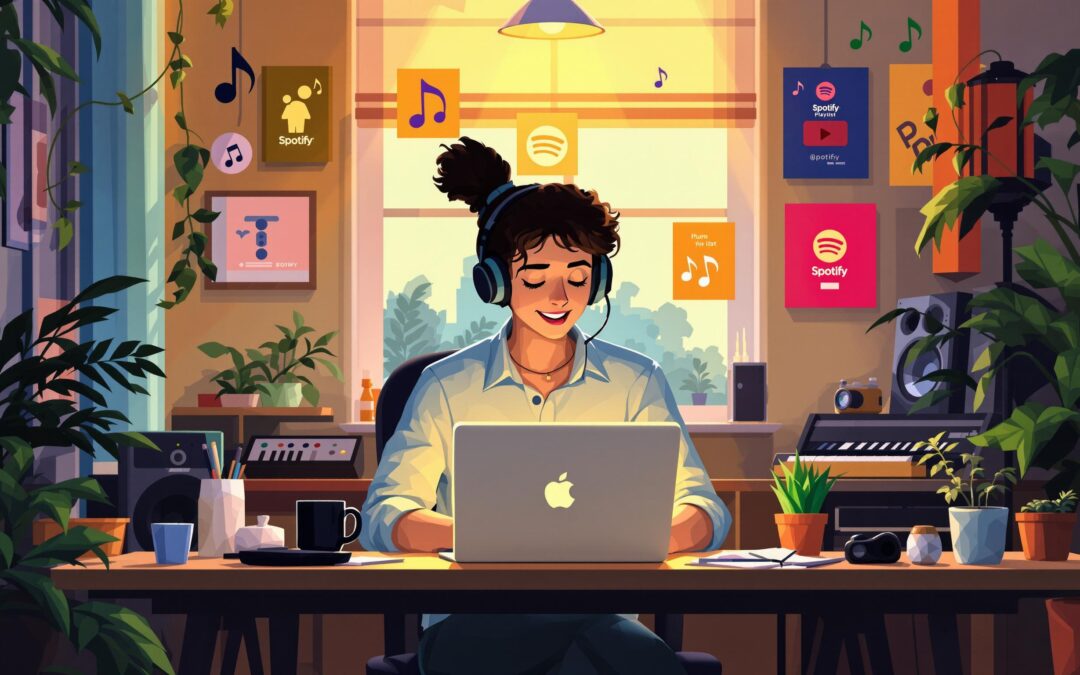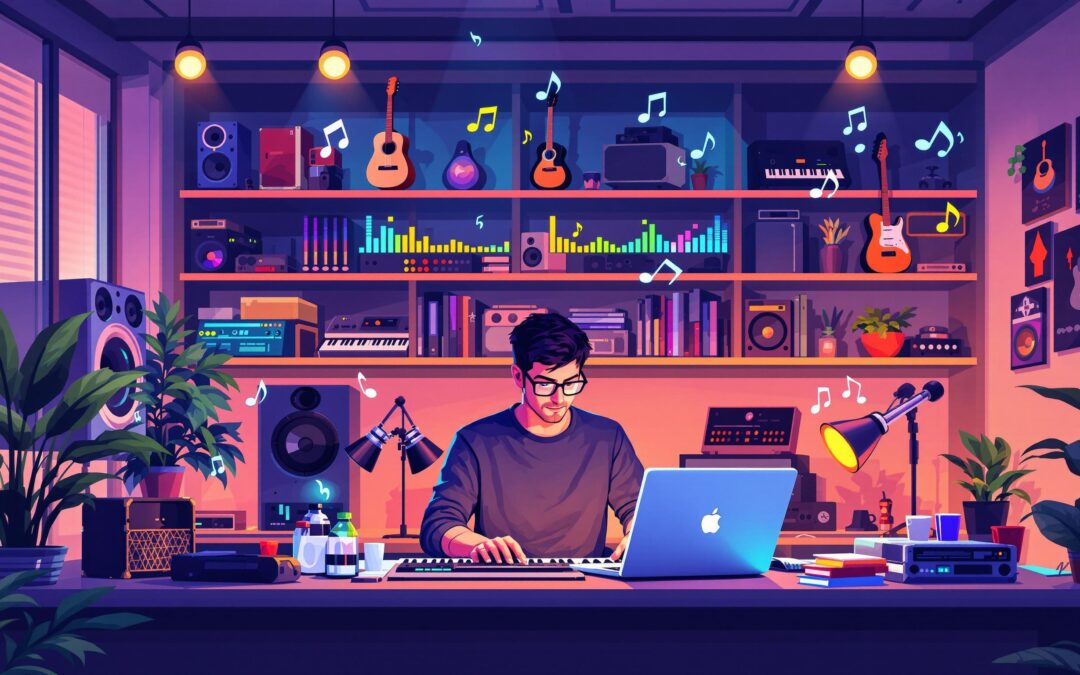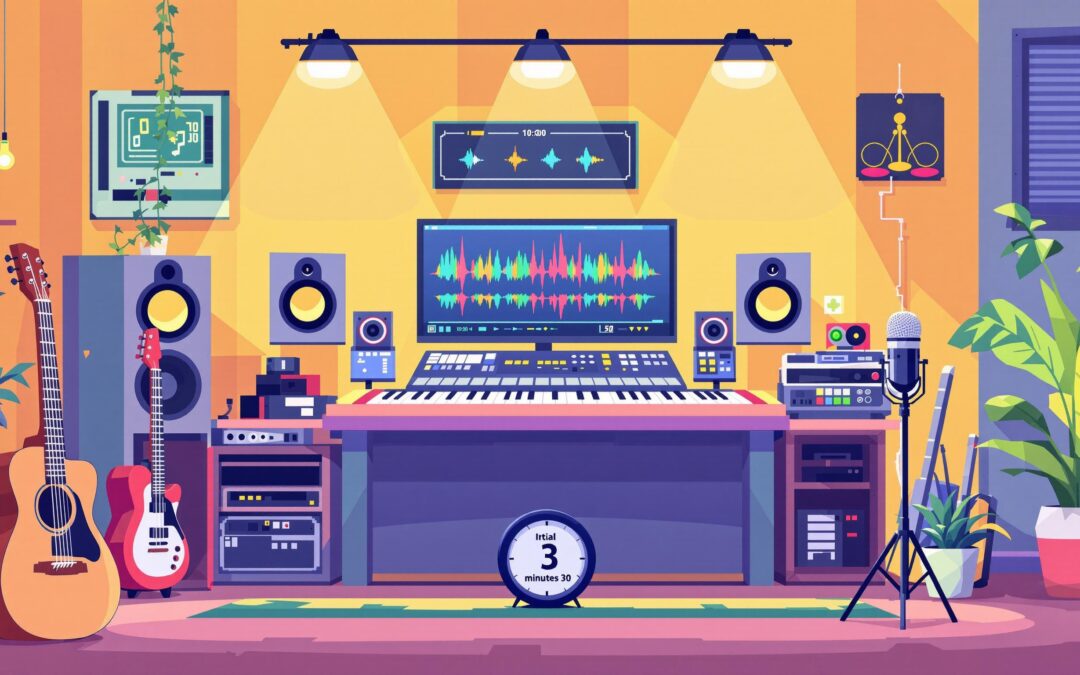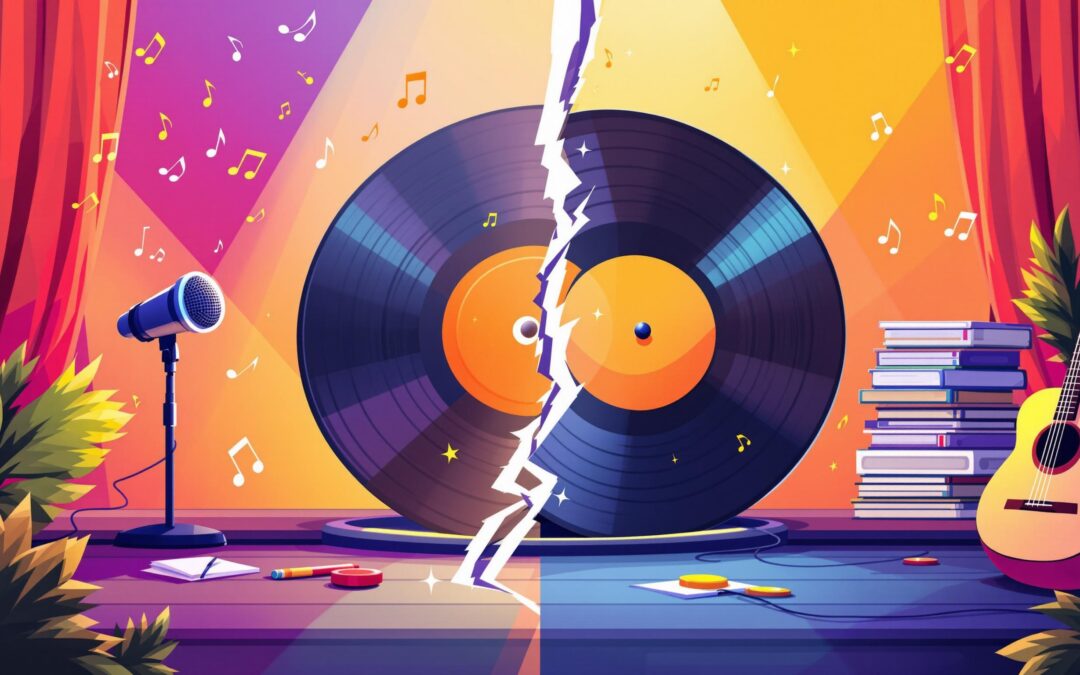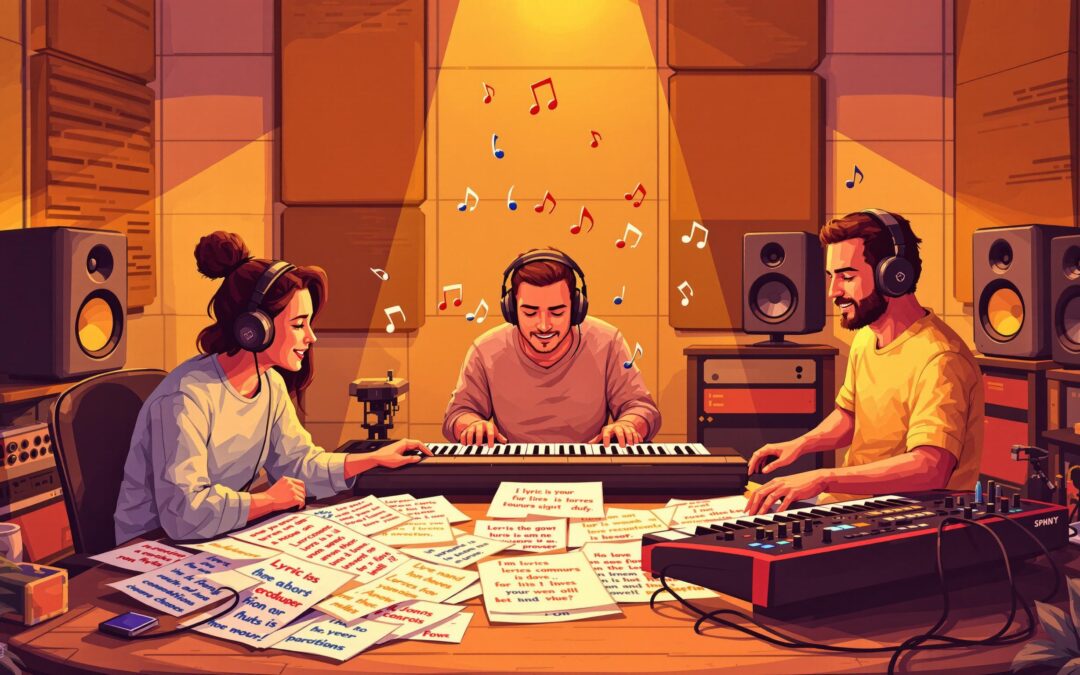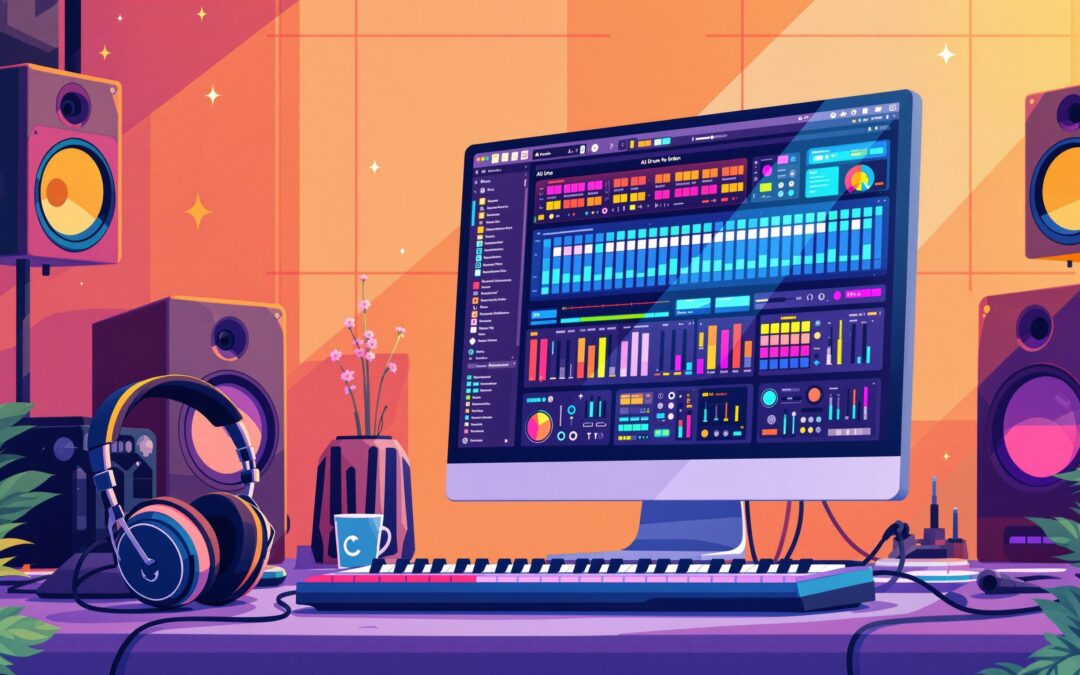AI lyric generators are tools powered by artificial intelligence that help songwriters overcome challenges like writer’s block and create lyrics faster. Here’s a quick breakdown:
- What They Do: Generate lyrical ideas, suggest rhymes, and explore themes.
- How They Work: Use AI models like GPT and Natural Language Processing (NLP) to analyze language patterns, rhyme schemes, and song structures.
- Benefits:
- Quickly generate multiple lyric options.
- Expand vocabulary and find new perspectives.
- Provide structured suggestions for refining lyrics.
- Limitations: They may lack emotional depth, struggle with thematic consistency, and require human editing for polish.
- Legal Concerns: Copyright ownership and originality can be tricky – always verify terms and check for plagiarism.
AI tools like Write.Record.Release can assist with songwriting, but your unique creativity and personal touch remain essential. Use AI as a collaborator, not a replacement.
How to Write Song Lyrics with AI: LyricStudio Songwriting Process
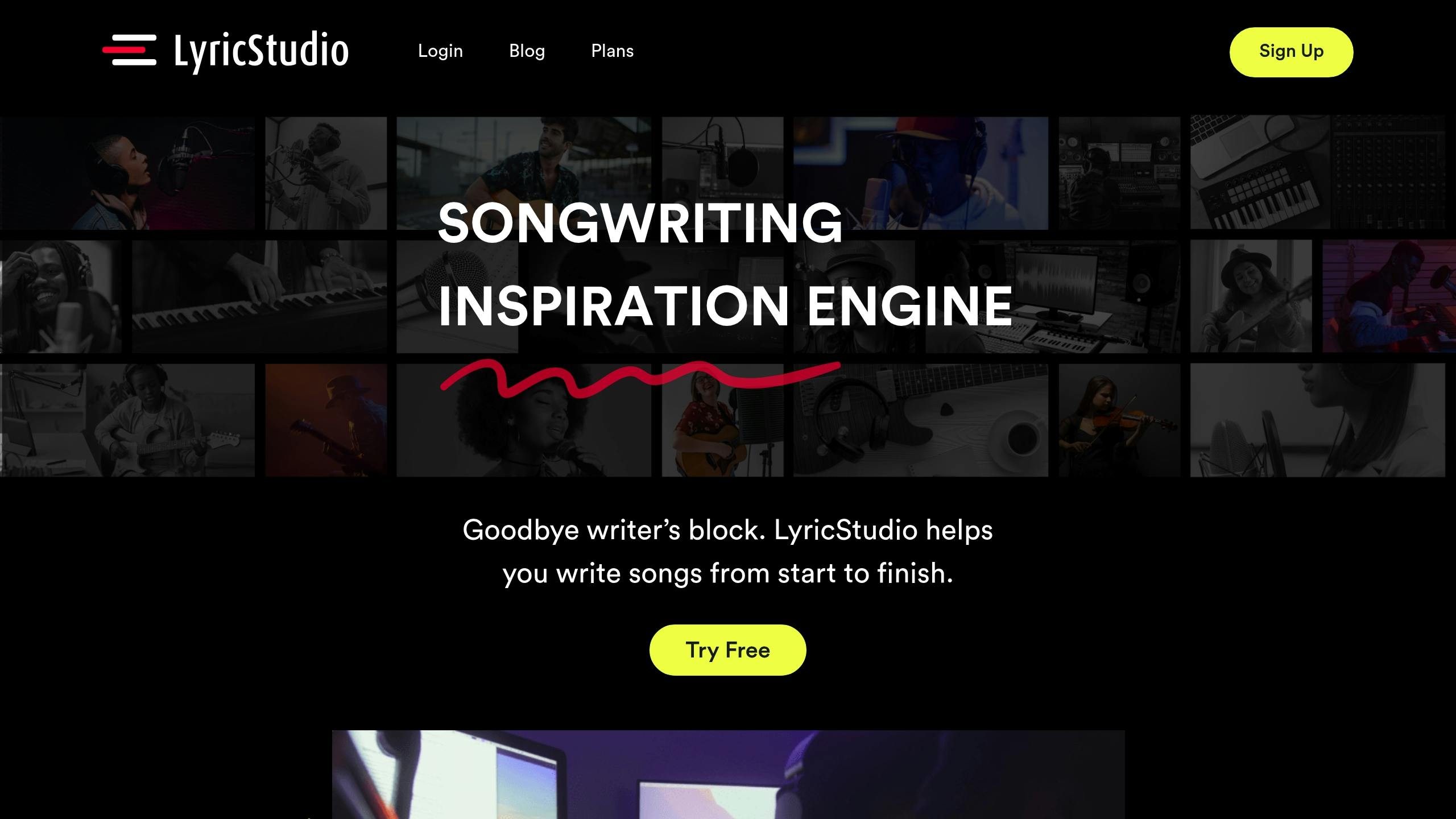
Core Technology Behind AI Lyrics
AI lyric generators rely on machine learning models to grasp language patterns and create lyrics that fit musically and contextually.
Natural Language Processing (NLP) Basics
NLP allows AI to break down and understand the elements of language, such as:
- Syntax analysis: Examining sentence structure and grammar.
- Semantic processing: Decoding meaning and context.
- Pattern recognition: Spotting rhyme schemes and rhythmic patterns.
These skills enable AI to study existing lyrics and craft new ones that align with both linguistic rules and poetic traditions.
Key AI Models Used
Most AI lyric generators use transformer-based models like GPT (Generative Pre-trained Transformer). These models excel at understanding context and generating text, which is critical for maintaining the flow and style of a song.
| Model Type | Primary Function | Application in Lyrics |
|---|---|---|
| Transformer-Based Models (e.g., GPT) | Generating text and processing context | Ensuring thematic consistency and structuring lyric flow. |
By analyzing large amounts of song data, these models continuously improve their ability to create coherent and stylistically appropriate lyrics.
How AI Learns from Song Data
AI lyric generators are trained on extensive song datasets to identify patterns, rhyme schemes, and themes across various genres. The training involves:
- Analyzing storytelling structures and emotional tones in music.
- Building genre-specific models while avoiding issues like overfitting or unintentional plagiarism.
Up next, we’ll dive into how AI refines its lyric generation using this song data.
Getting Started with AI Lyric Tools
Now that you understand the technology behind AI lyric generators, it’s time to put that knowledge into action and enhance your songwriting process.
Choosing the Right AI Lyric Tool
Pick an AI lyric generator that aligns with your songwriting goals. The following features can help you make the best choice:
| Feature Category | What to Look For | Why It Matters |
|---|---|---|
| Genre Support | Range of music styles supported | Ensures the AI aligns with your desired genre |
| Customization | Options for tone, theme, and structure | Helps retain your creative vision |
| Export Options | Compatibility with DAWs and writing tools | Simplifies your workflow |
| Learning Curve | Easy-to-use interface and helpful tutorials | Boosts productivity and saves time |
Some tools focus on general content generation, while others are tailored for music, offering features like rhyme scheme adjustments or syllable matching.
Crafting Better AI Prompts
The quality of AI lyrics often depends on how well you frame your prompts. Clear and detailed instructions lead to better results. Here’s how to do it:
- Be specific about emotions: Instead of saying, "write sad lyrics", try something like, "write lyrics about heartbreak after a 5-year relationship."
- Provide musical context: Include details like tempo, genre, or song structure.
- Reference styles or artists: Mention artists or songs that inspire you.
Example Prompt: "Create lyrics for a mid-tempo rock ballad about overcoming personal struggles, inspired by Foo Fighters, with themes of hope and resilience."
Refining AI-Generated Lyrics
AI-generated lyrics are a starting point, not the final product. Here’s how to make them your own:
- Ensure the metaphors and themes stay consistent throughout.
- Add personal stories or emotional depth to make the lyrics more relatable.
- Match syllable counts to fit your melody and rhythm.
- Use a plagiarism checker to confirm originality.
For more tips on incorporating AI into your songwriting, check out Write.Record.Release (https://writerecordrelease.com).
sbb-itb-1c6af30
Current Limits and Risks
Technical Limitations
AI lyric generators, while impressive, still face a range of challenges.
| Limitation Type | Description | Workaround |
|---|---|---|
| Contextual Understanding | Struggles to maintain a consistent theme across verses | Break the songwriting process into smaller, focused sections |
| Emotional Depth | Often lacks genuine emotional resonance | Use AI as a starting point and add personal experiences |
| Language Structure | Can produce grammatically correct but uninspired phrases | Edit for better coherence and creative flow |
These tools often require extensive human editing to achieve professional results. While they can handle rhyme schemes and basic song structures, maintaining consistent metaphors or crafting deep emotional narratives remains a challenge.
Legal and Rights Issues
Legal concerns are another aspect to consider when using AI-generated lyrics. The rules around ownership and rights are still developing, and there are a few key points to keep in mind:
- Copyright Ownership: Many AI platforms claim users have full rights to the generated content, but always verify before commercial use.
- Attribution Requirements: Some platforms may require acknowledgment in your final work.
- Derivative Work Risks: AI-generated lyrics could unintentionally mirror patterns from copyrighted material.
To avoid legal pitfalls, follow these steps:
- Keep records of your contributions to differentiate between AI-generated and original content.
- Carefully review the terms of service for the AI tool you’re using.
- Use plagiarism detection tools to ensure originality.
Maintaining Personal Style
Preserving your unique voice is essential when incorporating AI into your songwriting process. Here are some tips to stay true to your style:
- Start with Your Ideas: Use AI to build on your concepts instead of letting it create content from scratch.
- Be Selective: Pick specific lines or rhymes that align with your vision.
- Add Emotional Depth: Infuse the framework with your personal experiences and emotions.
What’s Next for AI Songwriting
New AI Tools on the Horizon
AI lyric generators are advancing quickly, offering more tailored and context-aware support for songwriters. Developers are focusing on creating systems that adapt to an artist’s individual style and emotional tone. These improvements are already reshaping how music is made.
How Music Creation Is Evolving
AI is changing the way songwriters approach their work. By combining human creativity with AI tools, new workflows are emerging that help overcome creative blocks and explore fresh ideas. Instead of replacing human ingenuity, AI acts as a tool to spark inspiration and assist songwriters in:
- Coming up with initial ideas while keeping creative control
- Trying out different lyrical approaches
- Polishing existing work with focused suggestions
This shift is opening the door for more interactive collaborations between humans and AI.
Partnering with AI Co-Writers
Using AI as a creative partner means blending its advanced capabilities with your personal style. Modern AI systems now understand song structure, themes, and intent, making them more effective collaborators. To get the most out of these tools, consider these strategies:
- Start with Clear Goals: Define your themes and emotional direction upfront so the AI can provide more aligned suggestions.
- Iterate and Refine: Adjust AI-generated ideas step by step to ensure they fit your vision.
- Merge Styles: Combine AI suggestions with your unique style to create a final product that feels personal yet enhanced.
Future AI tools will continue to help songwriters maintain their individual voices and emotional depth, while becoming even better at capturing the subtleties of human emotion and musical storytelling.
Conclusion
Main Points Recap
AI lyric generators have become powerful tools for songwriters, acting as reliable assistants to spark ideas and make workflows more efficient. While these tools support creativity, they don’t replace the human touch in artistry.
Some key benefits of using AI lyric generators include:
- Idea Generation: Break through writer’s block and explore new concepts.
- Improved Workflow: Simplify the process of developing and refining lyrics.
- Artistic Consistency: Use AI to assist while keeping your unique style intact.
Additional Resources
If you’re looking to expand your songwriting toolkit, platforms like Write.Record.Release offer resources on AI-driven songwriting, copyright guidance, and music distribution to help streamline your creative process.
AI lyric tools are evolving, offering features that reflect musical subtleties and emotional depth. As these technologies improve, they can become trusted partners in your creative journey. By integrating these tools, you can combine innovation with your personal artistic vision.
